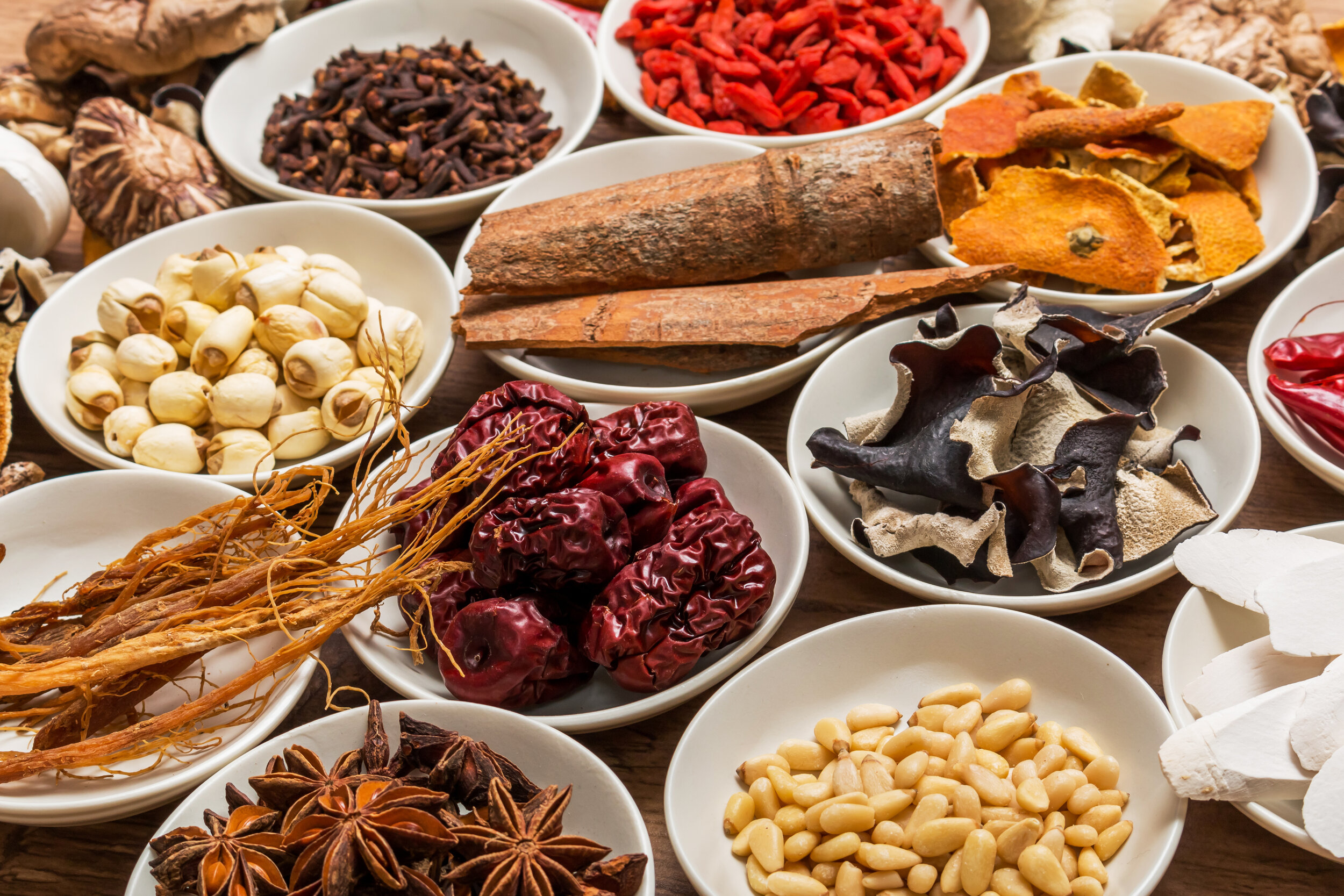Chinese herbal medicine is rooted in a tradition that dates back at least 2,500 years. Although the usage of herbs to treat ailments is not unique to Chinese culture, the tradition is certainly one of the more sophisticated ones to have been passed down through the ages.
Chinese herbal medicine involves the use of plants and seeds for therapeutic effect. The herbs are kept in as natural a form as possible, so that your body will be able to process them better and promote healing.
In Western herbal medicine, a single herb (e.g. St. John’s Wort) is used to treat a specific sign or symptom (e.g. depression). In Chinese herbal medicine, a combination of herbs is used.
That’s because Chinese herbal medicine recognizes that no two patients manifest the same pattern of signs and symptoms. For example, what causes one patient’s migraine may not necessarily be the cause of another patient’s migraine.
In other words, Chinese herbal medicine doesn’t only address the obvious signs and symptoms bothering you. Instead, it also digs deep into the root cause of your ailment, and prescribes a medical formula accordingly.
HOW CHINESE HERBAL MEDICINE IS PRESCRIBED
Chinese herbal medications often come in formulas of four to 12 herbs. Unlike over-the-counter (OTC) medicines, they’re not mass-produced, since their formulas need to be tailored to individual patients.
The medicines are created to address not only the physical signs and symptoms, but also their root causes. For example, if Patient A’s migraine is due to stress, and Patient B’s migraine is due to insomnia, they will be prescribed different formulas even though they have the same basic complaint.
Treatment doesn’t stop with the formula initially prescribed. As your symptoms change over time, so will the formula administered to you. Depending on your particular ailment, and how well your body is responding to treatment, Chinese herbal medicine may take a few weeks or months to fully take effect.
WHAT ILLNESSES CAN CHINESE HERBAL MEDICINE TREAT?
Chinese herbs can help treat diseases that include, but are not limited to:
Infertility and menstrual related conditions (PCOS, dysmenorrhea, amenorrhea, PMDD)
Gastrointestinal disorders (chronic constipation, IBS)
Respiratory ailments (allergies, asthma, chronic coughs, bronchitis)
Peri-menopausal symptoms (hot flashes, night sweats, insomnia)
Urinary tract disorders
Psychological disorders (anxiety, depression, stress)
ARE CHINESE HERBS SAFE?
Absolutely. As long as they’re administered under the supervision of an expert, and as long as you follow the instructions as closely as you can, there should be no serious side effects.
That said, if you are taking other medications or supplements, it’s important that you inform your herbalist/TCM practitioner ASAP. Otherwise, the combination of various medications might cause unwanted interactions. You may also want to be upfront about any existing allergies you have to any herbs, in case the formula prescribed to you contains it.
WHERE CAN I BUY CHINESE HERBS?
Because of the nature of Chinese herbal formulas, it’s not recommended that you buy them over the counter to self-medicate. You’ll get better results if you buy directly from a trained professional who can recommend the best formula for your specific condition. If you live in the United States, you can search for a practitioner by zip code on the NCCAOM website.

